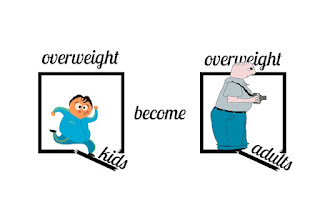Childrens Nutritional Dietary Needs
Diet Aides for Children
Diet aides for children exist because the many adult diets in existence are unsafe for children to strictly follow. One of the main diets that kids follow nowadays, through the leadership of their parents, leads them towards obesity which is an increasing issue worldwide. Pediatricians and parents are critical for guiding children towards their proper weight and nutritional needs.
Diets are unsafe for children unless a pediatrician ok's it, and Doctors are able to recommend what the proper weight for your child should be (Liao). Ages 2-18 are crucial ages for children because dietary patterns begin to form which last into adulthood including poor nutrition habits leading to obesity, type 2 diabetes, and heart disease so parents are crucial in developing good nutritional habits at an early age (USDA).
Childhood Obesity Huge Epidemic Worldwide
Obesity in kids has reached epidemic proportions worldwide due to junk food, fast food, lack of exercise, and video and computer games keeping kids inside. Kids need a nutrient-dense diet based on age and activity level with limitations on sugar and saturated fats (Mayo Clinic). Why this is not the norm worldwide is beyond me since a parent's top priority should be their child's health.
Neglect is linked to obesity in children in certain cases (Black and Drennen). A low nutrient diet leaves kids malnourished and in 2003 the US Department of Health and Human Services (USDHHS) linked 900,000 children maltreated inside the USA, leading to obesity and even death (Stavrianos et al.).
Being malnourished is defined as an underweight or overweight nutritional imbalance (World Health Organization). Malnutrition in kids leads to weak immune systems, stunted growth, psychiatric problems, and anxiety (Johns Hopkins Medicine). Many diet aides for children exist to avoid these nutritional deficiencies.
Avoid Skipping Meals Boosts Metabolism
What you want your child to avoid is skipping meals because eating throughout the day keeps their metabolism going allowing the burning of calories (Iannelli). Skipping dinner is extremely detrimental because it is usually the most nutrient-dense meal of the day and studies revealed dinner was the most skipped meal of the day for kids surprisingly, which leads to an increased risk of obesity compared with kids who ate 3 meals a day regularly (Park).
After discussing with your child's pediatrician what your child's weight should properly be, it is crucial for parents to keep their kids at that proper weight. Parents are kids first line of defense for obesity since they learn nutritional and recreational habits from them. If parents keep kids healthy at an early age, then they are at a lower risk for type 2 diabetes, obesity, heart disease, cancer, and a whole host of other illnesses related to poor nutrition and being overweight.
Here are some free recipes from the United States Department of Agriculture (USDA) to keep your kids healthy and strong.
Works Cited
Liao, Sharon. “Safe Weight Loss for Overweight Kids.” WebMD, 2 Mar. 2022, www.webmd.com/parenting/features/safe-weight-loss. Accessed 29 Dec. 2022.
USDA. Dietary Guidelines for Americans 2020 -2025 Make Every Bite Count with the Dietary Guidelines. Dec. 2020.
Mayo Clinic. “What Nutrients Does Your Child Need Now?” Mayo Clinic, 2017, www.mayoclinic.org/healthy-lifestyle/childrens-health/in-depth/nutrition-for-kids/art-20049335.
Black, Maureen M., and Chloe R. Drennen. “Nutritional and Growth Issues Related to Child Neglect.” Pediatric Annals, vol. 43, no. 11, 1 Nov. 2014, pp. e266–e270, www.ncbi.nlm.nih.gov/pmc/articles/PMC5829297/, 10.3928/00904481-20141022-10. Accessed 28 Oct. 2019.
Stavrianos, C., et al. “Nutritional Child Neglect: A Review.” The Internet Journal of Forensic Science, vol. 4, no. 1, 31 Dec. 2008, ispub.com/IJFS/4/1/8472.
Johns Hopkins Medicine. “Malnutrition.” Www.hopkinsmedicine.org, 2022, www.hopkinsmedicine.org/health/conditions-and-diseases/malnutrition.
World Health Organization. “Malnutrition in Children.” Www.who.int, www.who.int/data/nutrition/nlis/info/malnutrition-in-children.
Iannelli, Vincent. “Tips to Help Those Kids Who Just Can’t Seem to Lose Weight.” Verywell Health, 1 Feb. 2022, www.verywellhealth.com/help-with-weight-loss-for-kids-who-cant-lose-weight-2633987.
Park, Alice. “Most Kids Don’t Eat Three Meals a Day.” Time, 16 Dec. 2014, time.com/3635985/school-lunches-snacks/.








Comments
Post a Comment